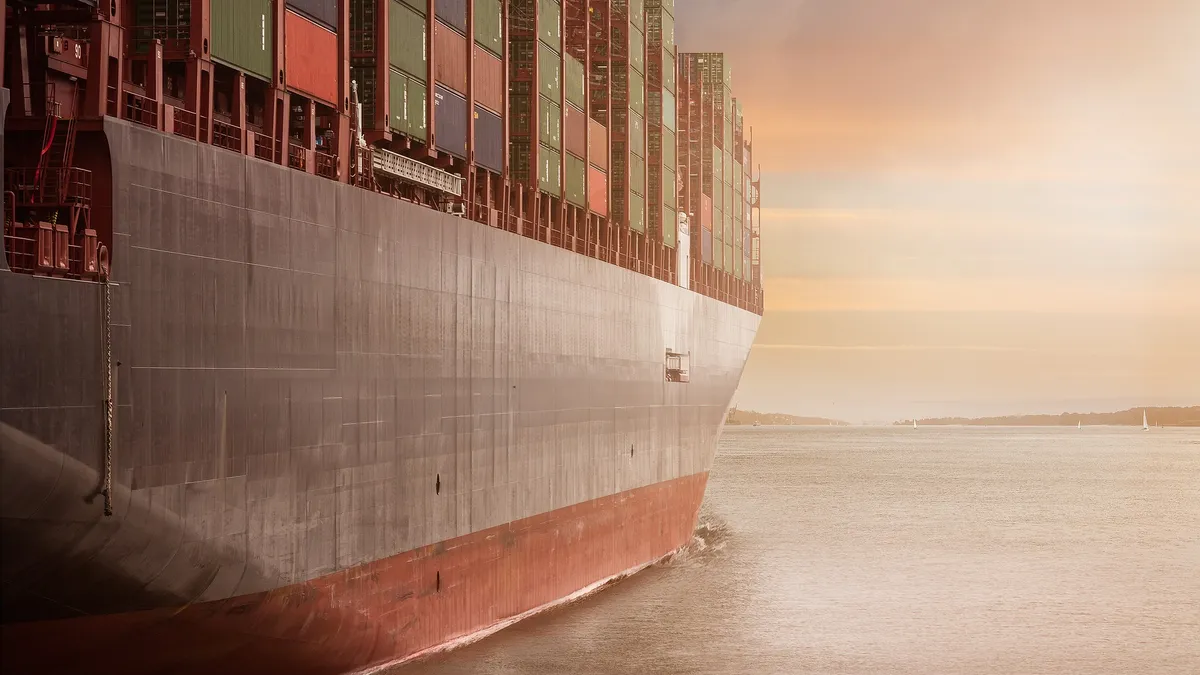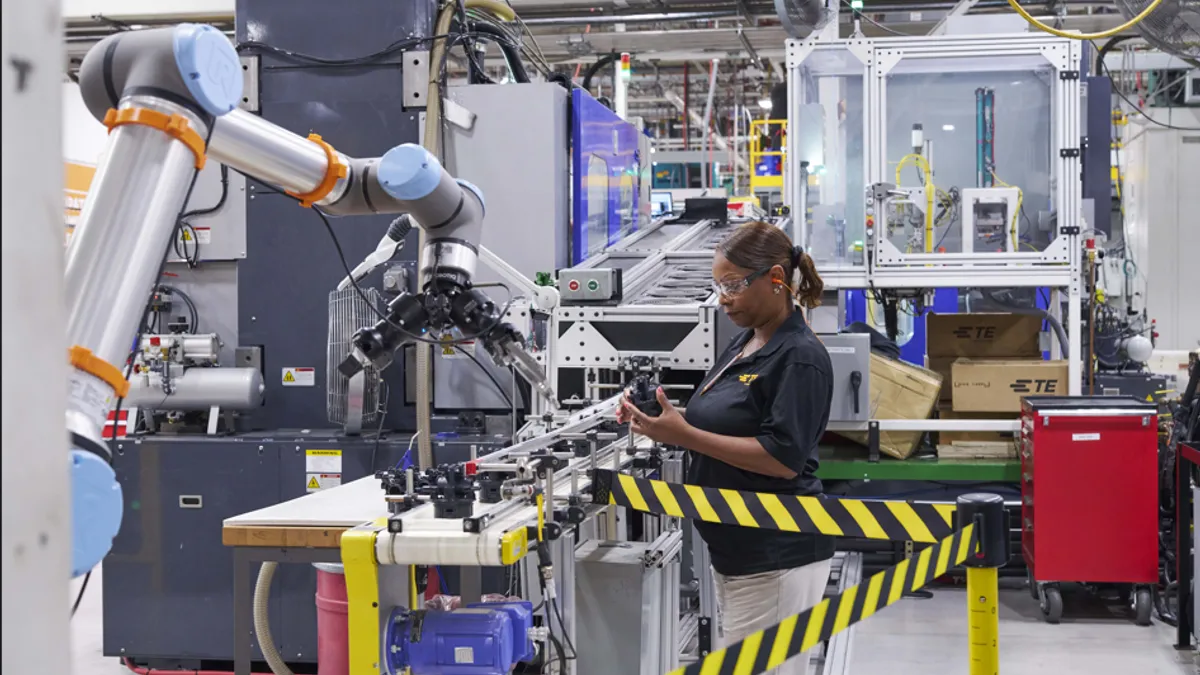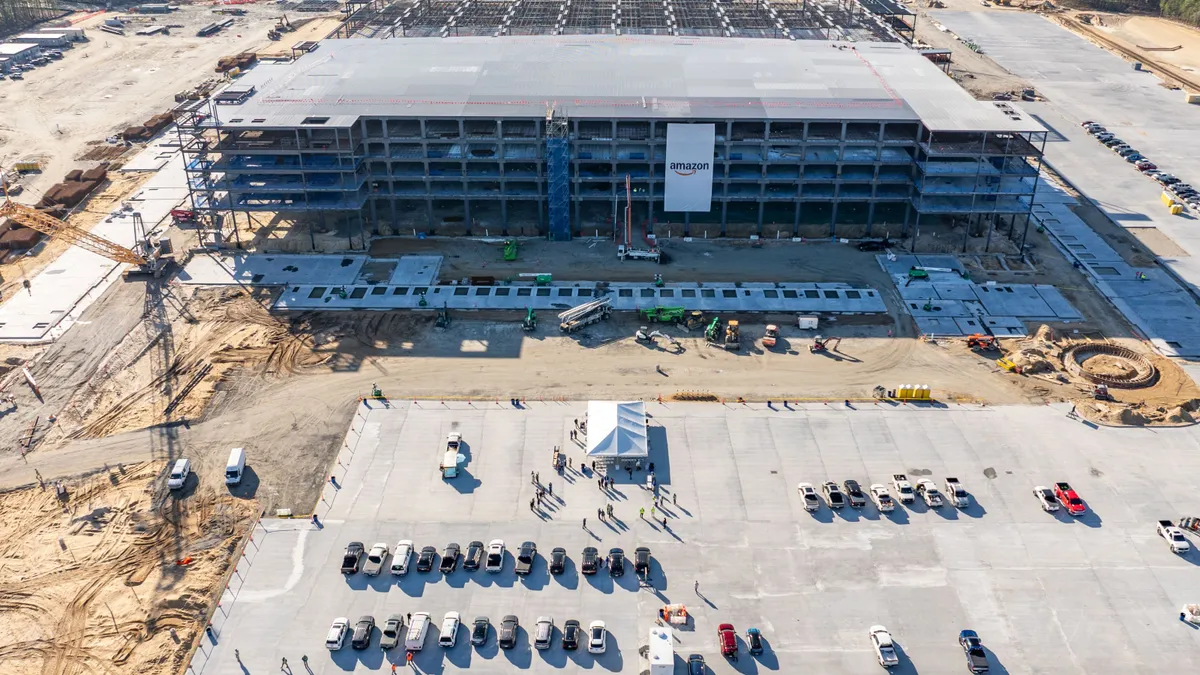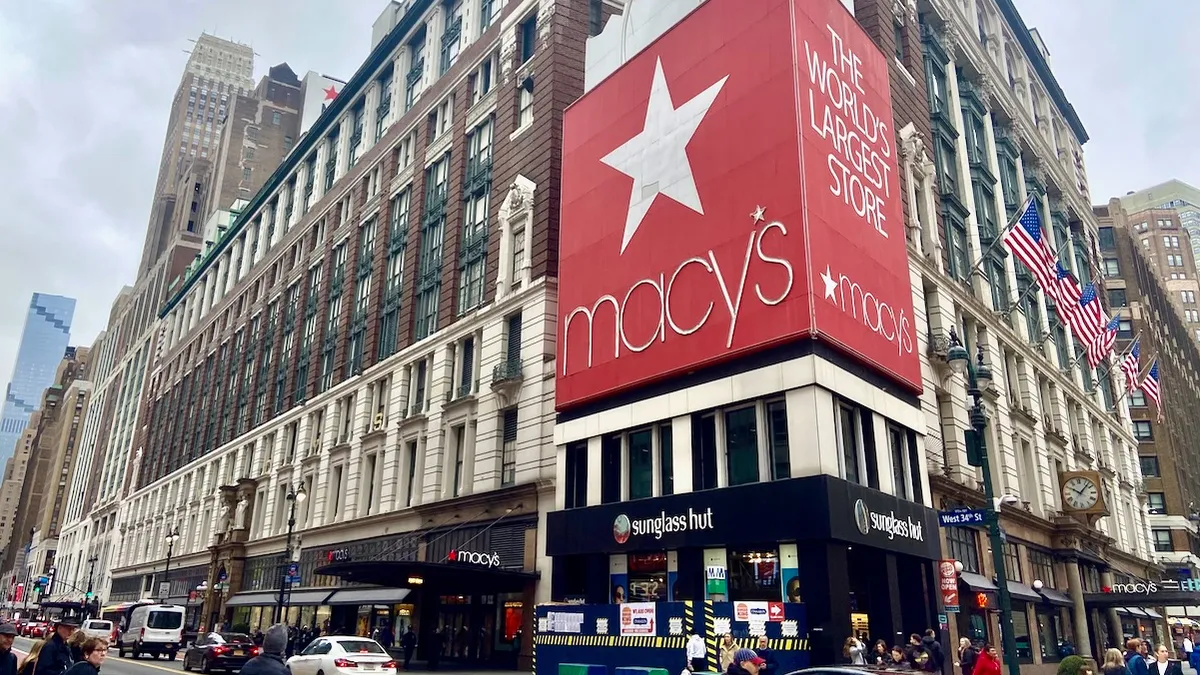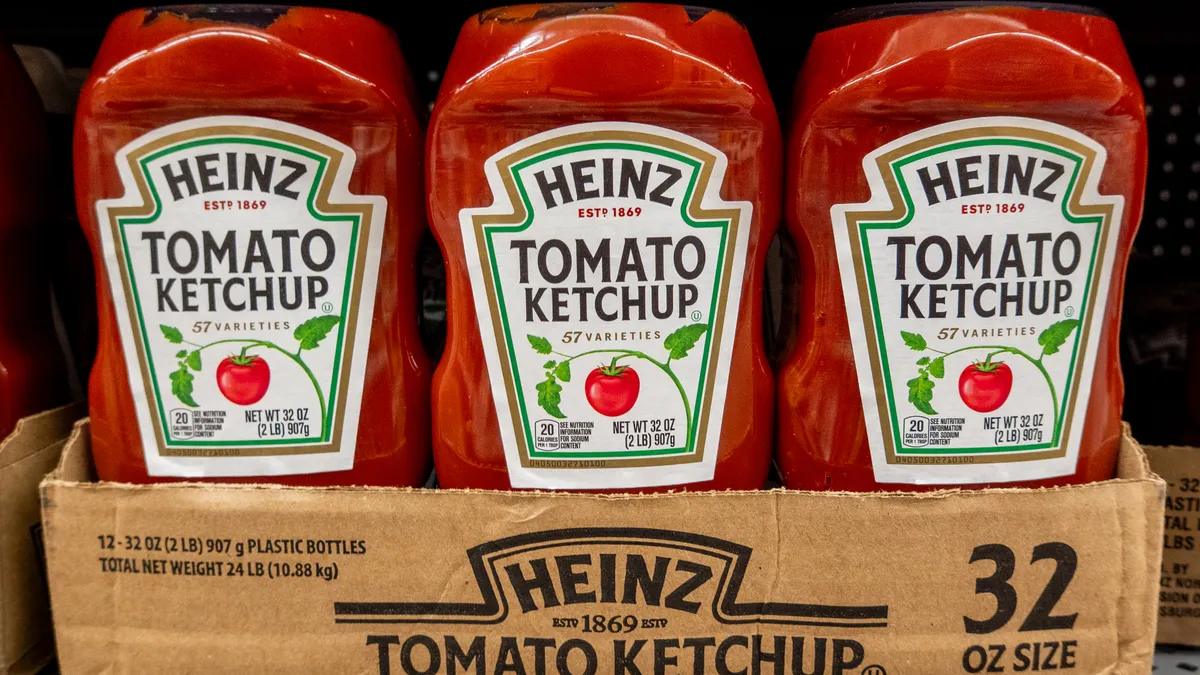Supply chains are constantly changing as new rules, technologies, resources and market trends transform operations. Here's a skim of the week's indexes, technology announcements, expansions and M&As from around the web.
In Case You Missed It
- An injunction to the FLSA overtime rule left supply chain budgets in limbo.
- Just-in-time procedures are driving a developers to flip offices into warehouses.
- Our Dive Awards recap the 10 biggest lessons for the supply chain this year.
Market Snapshot
The long-awaited freight market recovery may be on its way, according to the latest Cass Freight Index. For the first time in 20 months, the index reported year-over-year growth in freight shipments and a 0.9% growth compared to September volumes.
What contributed to this change? The Cass report claims the improvement was driven by a combination of e-commerce driven parcel and airfreight volume growth, slightly better rail and barge volumes and sequential improvements in truck tonnage.
The American Trucking Associations' For-Hire Truck Tonnage Index contracted 0.9% in October, as compared to a year ago. The slight improvement can be seen when compared to September, which fell 1.3% YOY, suggesting the decline was temporary.
Meanwhile, domestic manufacturing is strengthening according to a recent U.S. Census Bureau report. New orders for manufactured durable goods rose 4.8% in October, marking the fourth consecutive month of growth. Transportation equipment appears to have driven the growth as the subsector's orders rose $9.5 billion, or 12%.
It is too early to call a trend, according to Cass, but a look at the trend lines show a generally positive outlook for the freight and manufacturing industries' recovery.
Technically Speaking
Autonomous technology is on the rise across the world.
Self-driving startup NuTonomy announced plans to collaborate with the City of Boston and begin circulating nuTonomy-driven Renault Zoe automobiles in Boston, MA by the end of this year, according to The Wall Street Journal. The startup reportedly beat Uber and Alphabet's self-driving trials by a month with tests in Singapore last year.
Autonomous vehicles are not limited to city streets, however. BMW Logistics' Wackersdorf plant is now using 10 self-driven vehicles to transport goods and help manufacture other cars.
Drones can help move goods, too, according to recent reports. Geodis and Delta Drone recently partnered to develop warehouse drones for experimental use in 2017, following trials at Geodis' facilities in Paris and Toulouse, France.
Supply chains are investing in visibility as the path to prosperity.

Supply Chain Dive
Back home, supply chains are investing in visibility as the path to prosperity.
The Port of Los Angeles recently partnered with GE Transportation to create a maritime information portal that would expand visibility for cargo inbound on vessels to 10 to 14 days, rather than the 48 to 72 hours of information lead time, DC Velocity reports.
A Boeing subsidiary is looking to bring the Internet of Things to the aerospace supply chain and beyond. Tapestry Solutions launched its Enterprise Sensor Integration software last week after field testing it at 50 Boeing plants.
In other news, San Francisco-based Chronicled launched its blockchain prototype, CryptoSeal, which records unique product information and asset movements as metadata to ensure goods, like pharmaceuticals, are protected from tampering.
Breaking Ground
U.S. East Coast ports are investing heavily in expansions as they eye a more integrated, intermodal future.
The Port of Wilmington, DE kicked off Thanksgiving week by announcing it would acquire a 114-acre site for $10 million, which would allow further office, warehouse and other project expansions as the port's current deepening project nears completion.
Ten million dollars may seem like nothing, but it is the first step in investment leading to further expansions such as those planned for the Port of Philadelphia. The Governor of Pennsylvania pledged $300 million for a full revitalization that would include warehouses and cranes to expand capacity by 86%, The Philadelphia Inquire reports.
U.S. East Coast ports are investing heavily in expansions as they eye a more integrated, intermodal future.

Supply Chain Dive
Not to be left behind, the Port of Charleston filed for a permit to build a 163-acre, $40 million cargo hub in Dillon, SC that would handle up to 110,000 cargo containers within 20 years.
Meanwhile, JAXPORT officially opened a new $30 million rail terminal that will connect two port terminals with the main Class I rail line, American Shipper reports.
In other news, UPS opened a new 350,000-square-foot small-package facility in Monroe, NJ; began its 375,000-square-foot expansion of its Columbus, OH facility; and announced plans to more than double the size of its 203,662-square-foot facility in Nashville, TN.
Mergers & Analysis
Hamburg Sud may be the biggest spoil yet from the shipping industry's continued consolidation.
After rumors arose that the German shipping line was considering a full sale, Maersk Line finally announced it would acquire the shipping line for $4 billion. The German shipping line is currently the seventh largest carrier in the world, with a dominant presence in Latin America, where both Maersk and competitor CMA CGM have been increasing investments.
Meanwhile, Hapag-Lloyd's merger with United Arab Shipping Co. was finally approved by the European Commission last week. Combined, the two shipping lines will carry 1.58 million TEU, American Shipper reports.
Hamburg Sud may be the biggest spoil yet from the shipping industry's continued consolidation.

Supply Chain Dive
Kansas City Southern and BNSF Railway announced they would partner to provide intermodal service from Chicago, IL to Monterrey and San Luis Potosi in Mexico. The service officially began Dec. 1 and will run five days a week.
In another nod to the importance of the U.S.' southern partner, APL Logistics' customs brokerage arm Carmichael International Service partnered with CARMI Logistics to facilitate U.S.-Mexico border crossing services for shippers based in Mexico.
Transport to Canada is equally important to the American shipper, however, as shown by Dallas-based Transplace's recent acquisition of Oakville, Ontario-based Lakeside Logistics for undisclosed terms.
Elsewhere along the supply chain, medical packaging specialist SencorpWhite recently acquired sealing machinery company Accu-Seal, as the two companies look to improve their automated capabilities, Packaging Digest reports.
In other news, PepsiCo strengthened its healthy beverage portfolio with its KeVita purchase and Sunoco Logistics Partners paid $20 billion in a stock deal for Energy Transfer.



